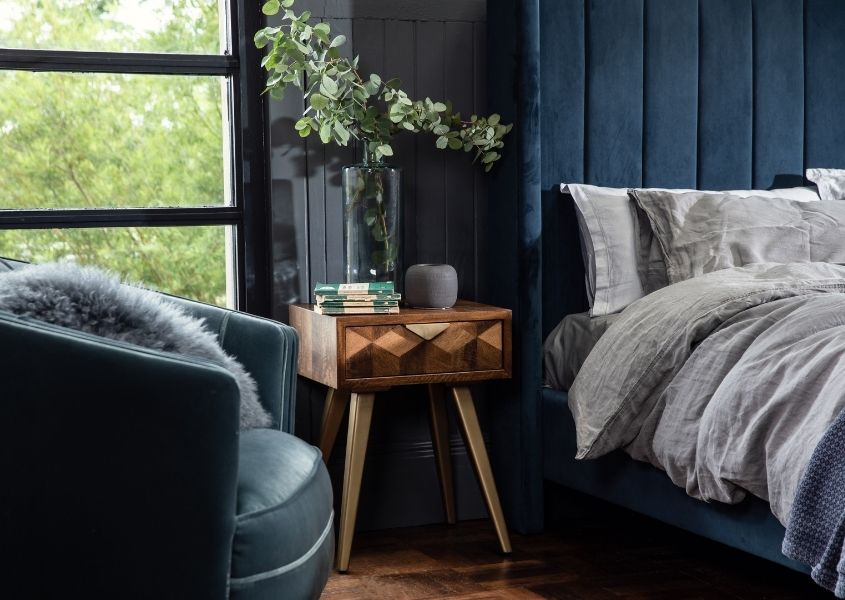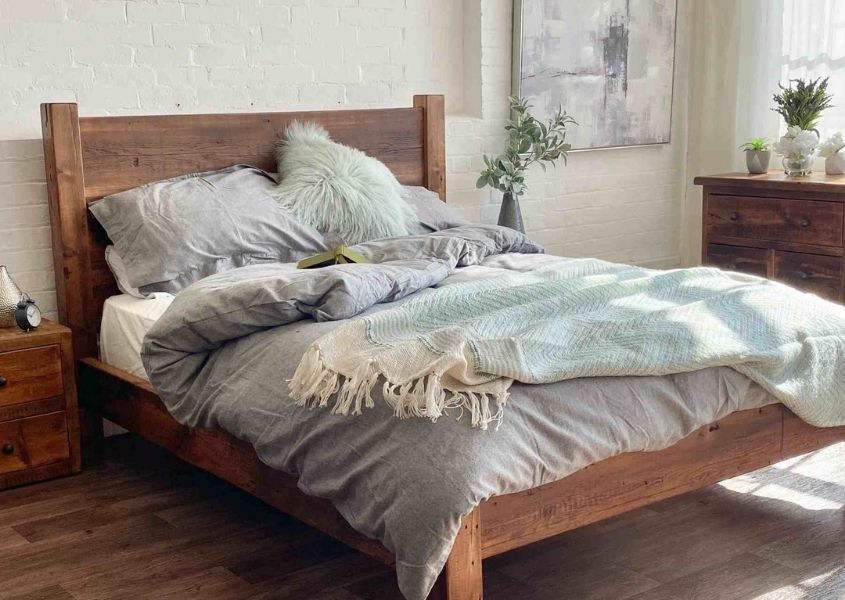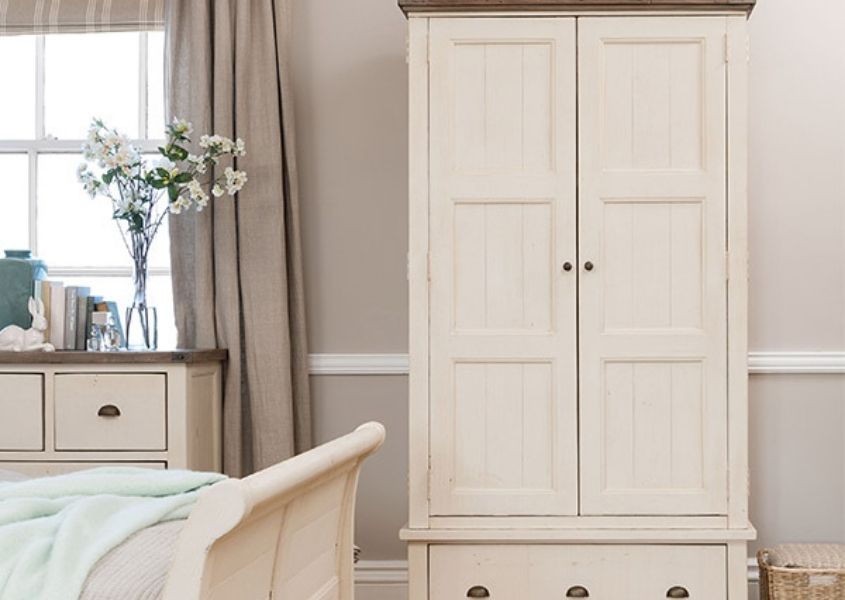
This weekend the clocks go forward an hour and it starts to feel as if spring and summer are finally coming…at last! And as lovely as it is to enjoy the longer days and to let the light flood into our homes, it can also mean an unsettled week or two for some of us. Losing that one hour a day can play havoc with our body clocks making it more difficult to get to sleep at the usual time and leaving us feeling groggy in the morning. To help your body clock adjust quicker, here we have some small changes you can make to your bedroom to help your body clock adjust quicker. From hiding tech in a bed table to placing a rustic wardrobe in front of an adjoining wall to muffle sound, see our handy tips and enjoy nothing but sweet dreams.

Changes to make in the bedroom to adjust to daylight saving
1. Hide away technology
We are told by sleep experts over and over again to switch off phones an hour or so before sleep – not only is there the issue of blue light but we are bombarded by news, adverts and other things that will stimulate us. It’s a great idea to put it on charge away from the bed on a wooden chest of drawers or dressing table at the other side of your bedroom. Likewise, you should not watch TV just before bed – a gentle read is a better way to get ready for sleep. Even LED alarm clocks can be detrimental to sleep – consider a sunrise alarm clock for your bedside instead.

2. Use the bed for sleeping only
For some of us, reading in bed before we turn the lights out is the perfect prep for a good night’s sleep, but some experts say that to sleep better you should only use your lovely solid wood bed frame for sleeping. If you struggle to nod-off, try adding a small armchair in to the bedroom and read from there – your body will connect bed with sleep and this may help you drift off easier. Plus, if you are in bed already it can be tempting to read “just one more page”!

3. Remove light and sounds
Blackout blinds or curtains are a must-have for light sleepers, but as well as blocking out the light to help promote healthy sleeping, think about blocking out sounds as well. If you live in a terraced or semi-detached house, not only do you have to contend with outdoor noise, but sounds from next door may disturb your precious sleep. Furniture against the adjoining wall can help muffle the sound from your neighbours, so move a rustic wardrobe or a solid wood chest of drawers against the wall to reduce any disturbances.

4. Give your bedroom a good clean
Another lesser known environmental disruption to your sleep is dust. As we move away from the colder winter months and start swapping duvets and storing blankets back in the wooden blanket box at the end of your bed, the dust in the air might get up your nose and disturb you at night. Give your bedroom a good airing and vacuum and dust the surfaces of your wooden bedside table or other rustic furniture you have in the bedroom.